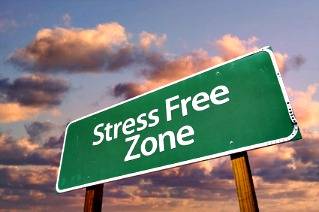Healing Stress the Natural Way
STRESS - This word is highlighted these days to such an extent where in, if you ask a teenager he will say yes I am stressed to an adult till old age. Everyone is stressed at each phase of life with different situations and circumstances.
So lets understand how does stress affect our body and why is it important to deal with it.
For optimal survival, the human body maintains homeostasis, which means that it wants to remain at a constant. The central nervous system is responsible for overseeing these functions. So when body is under stress, nervous system responds by releasing flood of stress hormones called adrenaline and cortisol which help body for emergency action that increase your strength, stamina, reaction time and enhance your focus....also known as fight or flight response – a body’s way to protect you.
Stress can take toll on our body organs from respiratory to heart, digestive system, muscular system and most important Immune system.
Also in presence of cortisol and adrenaline, liver produces more glucose - energy for "fight or flight" in an emergency. So if you don't use all of that extra energy, glucose gets reabsorbed but if the stress is chronic it can even lead to type 2 diabetes.
In short, this was a technical explanation wherein to make you understand how our body works under stressful situation.
But the truth is that stress is unavoidable....its a part and parcel of life and most of the adults suffer from stress related health issues. So inspite of stress counteracting on us let we counteract it.
Here’s a list of techniques to cope our stress without affecting our body much.
There are different ways to deal with stress......lets check out which one turns out to be your favourite:
1) Yoga: Stress is all around so hit the mat and give yoga a try.
Yoga is a mind-body practice that may help reduce stress, lower blood pressure and lower your heart rate. Yoga brings physical and mental disciplines that help you achieve peacefulness of body and mind thus making you feel relax and able to manage stress and anxiety.
The health benefits of yoga include:
- Stress reduction. Studies have shown that yoga may help reduce stress and anxiety by enhancing your mood and overall sense of well-being.
- Improves fitness. Practicing yoga helps improve balance, flexibility, range of motion and strength.
- Management of chronic conditions. Yoga helps reduce risk factors for chronic diseases, such as heart disease, high blood pressure, depression, pain, anxiety and insomnia.
2) Breathing: Breathing or Pranayama which means “to extend the vital life force”. Pranayama when practiced correctly, they support the parasympathetic nervous system and activates “relaxation response,” reducing stress and its effects on your body and mind. As a result, you become calm and more focused.
3) Meditation: Meditation can help ease anxiety. It alters the brain’s neural pathways, making it more resilient to stress. It's a simple posture where you need to sit up straight with both feet on the floor. Close your eyes and focus your attention on one thing.
4) Getting Vitamin O: Vitamin O is nothing but your Oxygen levels in the body. Under stress, our breathing pattern changes. We take small, shallow breaths, using shoulders rather than their diaphragm to move air in and out of their lungs. This style of breathing disrupts the balance of gases in the body
by increasing carbondioxde levels and decreasing oxygen levels, making us more anxious and worsening our stress.
5) Walk it off: Taking a walk can help lower stress hormones by increasing your endorphins thus making you feel good.
6) Think positively: Thinking positively can help calm you down and get you through each challenge. Instead of telling yourself that a task is impossible, try thinking that you will do the best you can.
7) Munch on healthy snack: Stress makes our brain deprived of energy and we feel to eat those chocolates or desserts, so hold on...... try taking a few minutes for a small, healthy snack – like nuts or a piece of fruit – to fill you up.
8) Music: Listening to music you love immediately boosts your dopamine levels, giving you an instant pick-me-up.
9) Get creative: The repetitive motions involved in several crafts, (like knitting) can be soothing and help you get rid of stress by getting your mind away from your stressors.
Just to summon up the above points in much simpler way see how to react to the specific response:
- The “fight” response. If you feel angry, agitated, or keyed up under stress, you will respond best to stress relief activities that quiet you down, such as meditation, progressive muscle relaxation, deep breathing.
- The “flight” response. If you feel depressed, withdrawn, or spaced out under stress, you will respond best to stress relief activities that are stimulating and energize your nervous system, such as aerobic exercise, massage, mindfulness, or power yoga, listening to music.
- The immobilization response. If you feel freeze or stuck under stress, your challenge is to first rouse your nervous system to a “fight or flight response” and apply stress relief techniques as guided.
By the end of this I am sure you must have counter attacked your stress and noted down the tips to deal with your stress next time but in case if your stress is still capturing you ....take a deep breath and get ready to attack it back.
About the Author:
Mr. Luke Coutinho
Integrative and Lifestyle Medicine, Holistic Nutrition, Exercise Physiologist and Founder - Pure Nutrition.





Share
Facebook
YouTube
Tweet
Twitter
LinkedIn